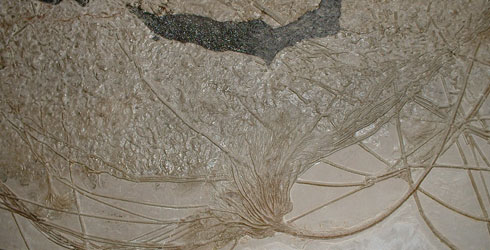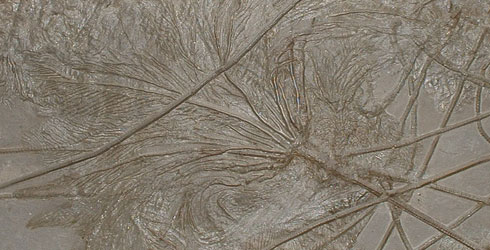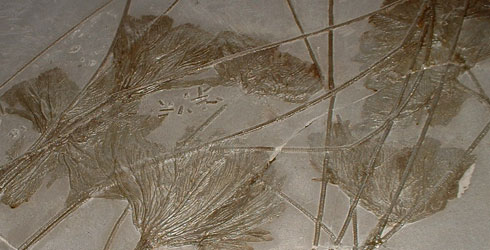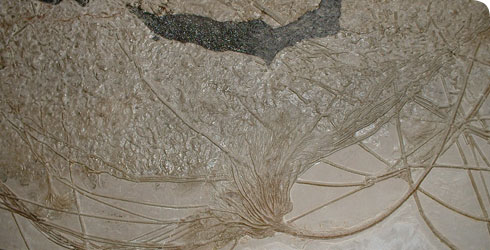Seirocrinus subangularis
Seirocrinus subangularis is a pseudoplanktonic sessile, filter feeder that lived attached to a floating tree trunk.
Seirocrinus subangularis is a primarily fixed animal, with the fan like crown supported by a tether like stem.
During feeding, food becomes trapped in the mucus and is tossed into the food groove by a sudden whip-like action. transporting the food along the groove to the mouth at the centre of the fan.
As Seirocrinus subangularis was attached to its wood raft structure through-out life (Seilacher et al 1968: Simms 1986) its movement and food supply was dependent on the current flow as the log is dragged through the water.
Species detail
Seirocrinus subangularis is sessile so is limited to bending movements of the stalk and flexion and extension of the arms.
The arms are arranged in a parabolic fan that faces into the prevailing water current. Each of the arms have numerous rows of featherlike pinnules, which are covered in podia. The podia are shaped like small tenticles and bear long slender mucus secreting papillae.
-

Taxonomy
Read a detailed diagnostic description of Seirocrinus subangularis.
-

Distribution and habitat
Learn where Seirocrinus subangularis lived, the type of habitat it lived in as well as its feeding patterns.
-

Biology
Get information regarding the size and growth patterns of Seirocrinus subangularis as well as a detailed overview of its lifecycle.
-

Behaviour
Discover the method by which Seirocrinus subangularis would have lived and find out about its dependence on the floating logs that it attached itself to.
Images

Seirocrinus subangularis was a filter feeder that lived attached to a floating tree trunk.

Seirocrinus subangularis is found in England, Germany, Canada and Japan.

Seirocrinus subangularis was thought to breed once a year when both eggs and sperm are released into the water column.

Seirocrinus subangularis has a fan like crown supported by a tether like stem.
Author
Aaron Hunter
Invertebrate Curator, Department of Zoology.
Toolbox
References
- Seilacher, A. Drozdzewski, G. & Haude, R. 1968: Form and function of the stem in a pseudoplanktonic crinoid (Seirocrinus) Palaeontology, 11. 275-82.
- Simms, M. J. 1986: Contrasting lifestyles in Lower Jurassic crinoids: A comparison of benthic and pseudopelagic Isocrinida, Palaeontology, 29 pp. 475- 493.
- Simms, M.J. 1989. British Lower Jurassic crinoids. Palaeontographical Society Monographs, 142. 1-103.
